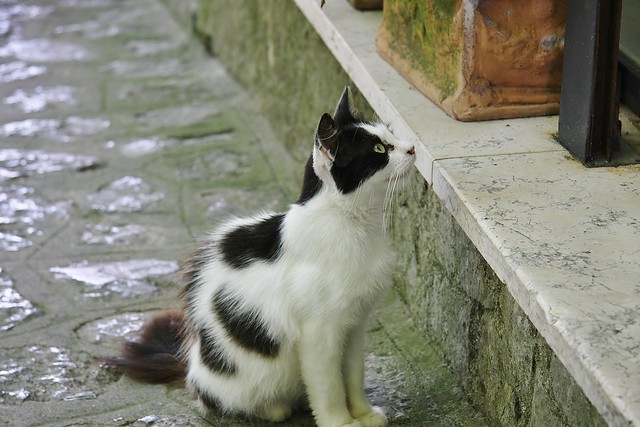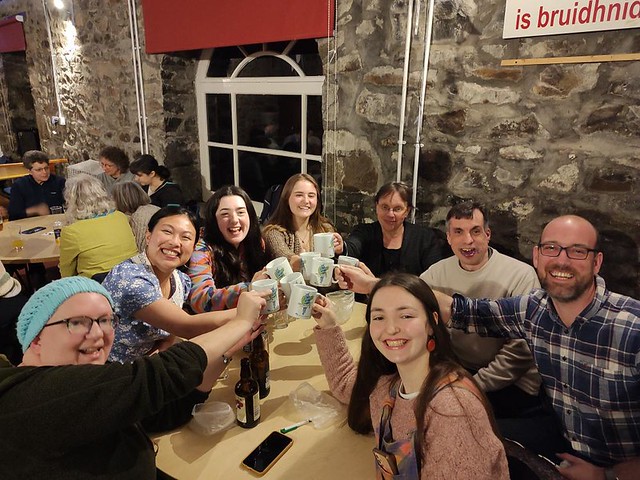Podcast: Play in new window | Download
In this Adventure we investigate the origins of the word busk.
Busk [bʌsk] means:
- To solicit money by entertaining the public in the street or in public transport.
- To sell articles such as obscene books in public houses etc. (obsolete)
- To tack, cruise about (nautical)
It possibly comes from French busquer (to seek, prowl, filch, busk), from Old Spanish buscar/boscar (to look for, to collect wood), from Vulgar Latin *buscum (wood), from Frankish *busk (wood), from Proto-Germanic *buskaz (bush, thicket) from PIE *bʰuH- (to be, become, grow) [source].
Words from the same roots include (to) be, bower, neighbour and future in English, boer (farmer, peasant) and buur (neighbour) in Dutch, and verbs meaning to be in most Indo-European languages [source]
There are several homophones/homographs of busk with different meanings. For example, there is busk that refers to to a strip of metal, whalebone, wood, or other material, worn in the front of a corset to stiffen it, and by extension, a corset. This comes from French busc (busk [of corset]), from Italian busco (splinter), probably from Frankish *busk (wood) [source].
Then there is busk that means to prepare, make ready, array, dress, or to go or direct one’s course. It’s used in northern England and Scotland and comes from Middle English busken (to prepare, get ready, arrange), from Old Norse būask, from būa (to prepare, make, live, dress, decorate), from Proto-Germanic *būaną (to dwell, reside), from PIE *bʰuH- (to be, become, grow) [source].
So it seems that even though these words have different meanings, they possibly all come from the same PIE root (*bʰuH-).
I also write about words, etymology and other language-related topics on the Omniglot Blog, and I explore etymological connections between Celtic languages on the Celtiadur.
You can also listen to this podcast on: Apple Podcasts, Amazon Music, Stitcher, TuneIn, Podchaser, PlayerFM or podtail.
If you would like to support this podcast, you can make a donation via PayPal or Patreon, or contribute to Omniglot in other ways.
Radio Omniglot podcasts are brought to you in association with Blubrry Podcast Hosting, a great place to host your podcasts. Get your first month free with the promo code omniglot.












